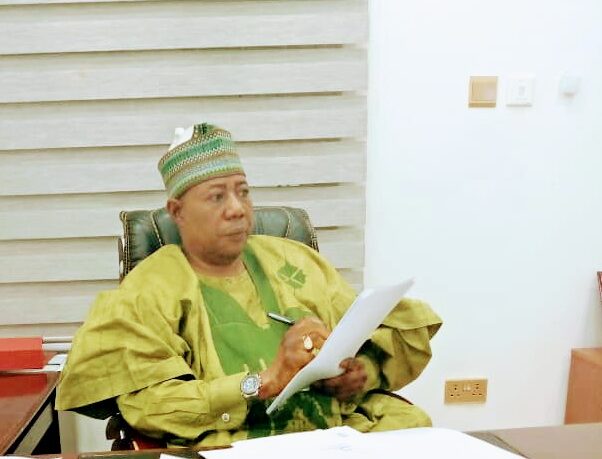In the 21st century global economy, the stability of the financial system is a crucial indicator of a business-friendly environment. Before the enactment of the Nigerian Deposit Insurance Corporation (NDIC) Act in 2006, bank depositors faced immense risks. Banks were prone to failure due to recklessness from operators, leaving depositors with significant financial losses.
The establishment of the Deposit Insurance system by the government aimed to protect depositors from losing their insured deposits placed with member institutions in the event of those institutions’ inability to meet their obligations. This system instills public confidence in the banking system by assuring savers of the safety of their funds.
The NDIC Act has played a vital role in safeguarding depositors and has had a positive impact on the financial system. However, the doctored version of the 2023 NDIC Act signed by former President Buhari at the end of his administration has raised concerns about its potential to undermine the independence of the NDIC and expose depositors’ funds to greater risks.
The new Act grants excessive control to the Central Bank of Nigeria (CBN) over the NDIC, including the power to appoint the NDIC’s managing director. This concentration of power could potentially compromise the NDIC’s autonomy and ability to effectively protect depositors’ funds.
The Act also introduces changes to NDIC’s deposit insurance framework, reducing the amount of insurance coverage provided to depositors. This could leave depositors more susceptible to financial losses in the event of bank failures.
The new Act’s provisions also give the CBN significant discretion in interpreting and applying its provisions, raising concerns about arbitrary decision-making and potential for corruption.
Failure to address the flaws in the NDIC Act 2023 could lead to detrimental consequences for the Nigerian banking system and the overall economy. It has the potential of truncating the realisation of the Renewed Hope Agenda of President Bola Ahmed Tinubu’s government because a lot of landmines have been deliberately planted in the new NDIC Act to hamper seamless financial flow.
An increase in the number of bank failures could result from the weakened NDIC’s ability to oversee and protect depositors’ funds. This would not only harm depositors but could also destabilize the entire economy.
Depositors’ loss of confidence in the NDIC’s ability to safeguard their funds could lead to a withdrawal of their money from banks, triggering a liquidity crisis and further destabilizing the banking system.
A weakened banking system could constrain credit availability and hinder economic growth, particularly for small businesses and entrepreneurs, who rely on access to credit to grow their businesses.
To address the concerns surrounding the NDIC Act, 2023, President Tinubu should take the following actions: Order a thorough investigation into the passage of the NDIC Act, 2023, to uncover any irregularities or improprieties; work with the National Assembly to amend the Act, ensuring that the amendments address the concerns raised and maintain the NDIC’s independence and effectiveness; implement measures to reinforce the NDIC’s autonomy and ability to fulfill its mandate, potentially by providing additional resources and strengthening its authority.
By taking these proactive steps, President Tinubu can safeguard the integrity of the NDIC, protect depositors’ funds, and foster a stable and supportive environment for economic growth.
As round off, let me recap what I have said so far for the purpose of emphasis. The recently enacted NDIC Act of 2023 has been met with fierce criticisms from various quarters due to its potential to erode the independence of the Nigeria Deposit Insurance Corporation (NDIC) and expose depositors’ funds to unforeseen risks.
In taking immediate steps to address these concerns, including initiating an investigation into the passage of the Act, President Tinubu should collaborate with the National Assembly to amend it, and bolster the NDIC’s autonomy and effectiveness.
Critics of the Act contend that it grants excessive power to the Central Bank of Nigeria (CBN) over the NDIC, potentially enabling the CBN to conceal its own missteps or bail out its own favoured entities. They further highlight the Act’s reduction in deposit insurance coverage and the CBN’s broad discretion in interpreting and enforcing its provisions as additional evidence of its potential to harm depositors and destabilize the banking system.
President Tinubu should order a comprehensive investigation into the passage of the Act to uncover any irregularities or improprieties. Should the probe reveal any problems, he should work with the National Assembly to amend the law, ensuring that the NDIC remains independent and effective in safeguarding depositors’ funds.
Additionally, he should take measures to strengthen the NDIC’s independence and effectiveness, potentially by providing it with increased resources and ensuring that it possesses the necessary authority to fulfill its mandate.
Failure to address the concerns surrounding the NDIC Act could have catastrophic consequences for the Nigerian banking system and the overall economy. A surge in bank failures, erosion of public confidence in the banking system, and reduced economic growth are just a few of the potential negative repercussions.
President Tinubu must act decisively to address these concerns and protect the stability of the Nigerian financial system. His Renewed Hope Agenda must not be sacrificed on the altar of laws that are anti-people.
Meanwhile, let me take time out to welcome Mr President back home from his official trip to Getmany. I have no doubt that it would not bee too long before Tinubu’s diplomatic shuttles in search of direct foreign investments begin to yield positive results. I’m also wishing Nigerians the best if times under the Renewed Hope Agenda as they await the dividends of economic diplomacy. Happy 2024 in advance.
– Ibrahim is Director, Communication and Strategic Planning, of the Presidential Support Committee (PSC).



